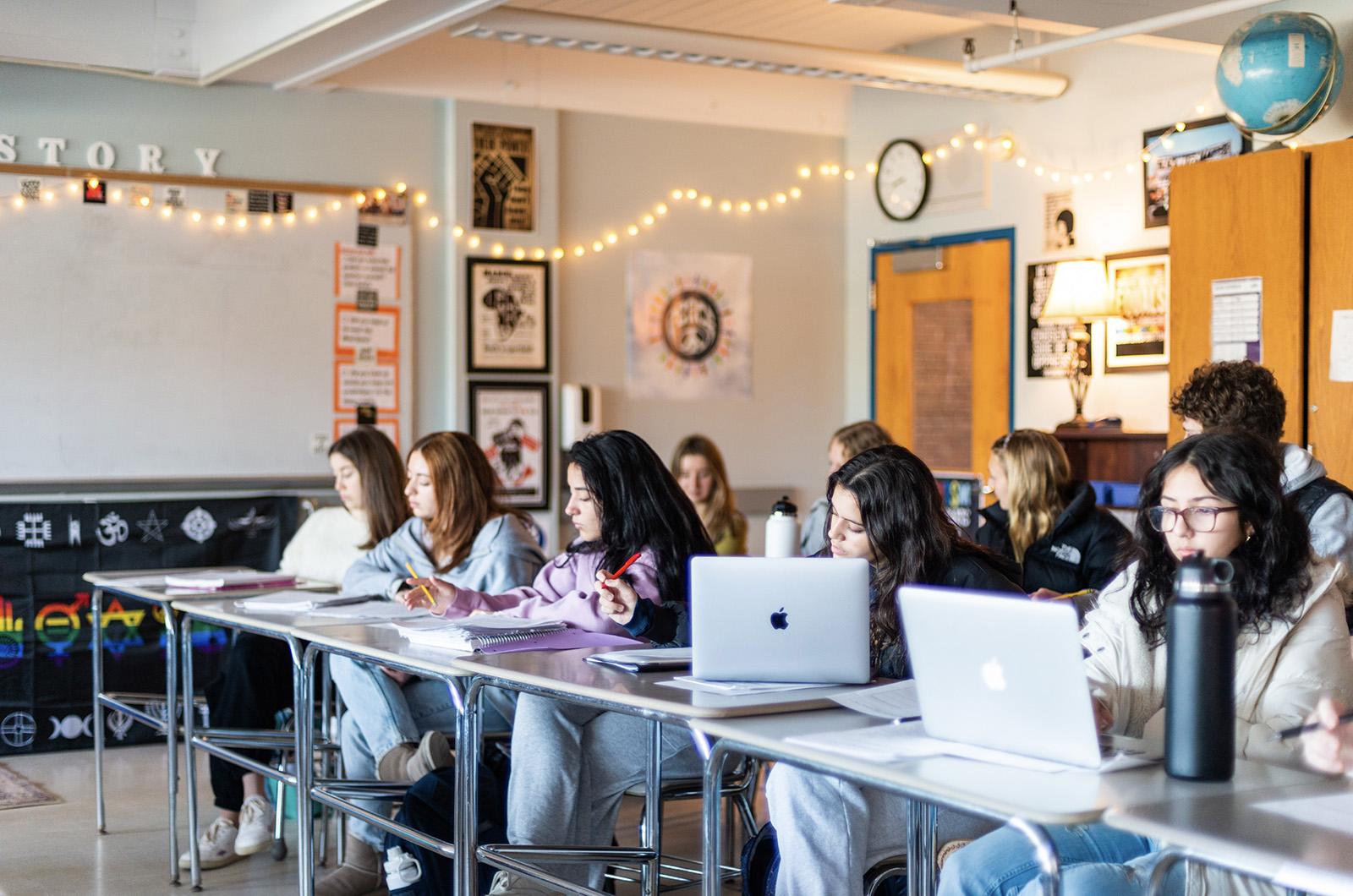Starting in September, students at Martha’s Vineyard Regional High School will no longer be permitted to use their personal laptops and tablets during the school day.
Instead, the school will equip all of its 700-plus students with identical Chromebooks, lightweight internet-based laptops that are already in use on the MVRHS campus and at schools across the country.
The regional high school makes Chromebooks available as students need them, but also has allowed students to bring their own devices such as computers to school, which officials say are too easily misused for cheating, virtual truancy and evading the district’s internet controls.
Educators should not have to make the choice between policing screens and delivering instruction, regional high school principal Sara Dingledy told the Gazette.
“It’s becoming a real hardship for teachers,” she said. “They shouldn’t have to circulate; they should be able to look up and visually see engagements.”
Rick Mello, the high school’s one-man information technology department, said that personal devices can bypass the school’s internet controls by using hotspots and virtual private networks to browse the web, text or email their friends, play games and watch movies — all activities the Chromebooks would prevent.
He likened the Chromebook switch to a change in textbooks that ensures everyone is working from the same book.
High school families were notified of the upcoming change in a letter, Ms. Dingledy said, and town school principals also will be informed on behalf of their graduating eighth-graders.
Mobile telephones are covered by a separate high school policy, which prohibits their use during classes, flex time and transit in hallways and while waiting in offices. But the phones still can be used as illicit hotspots, allowing personal devices to connect to the unfiltered internet, Mr. Mello said.
Mr. Mello and Ms. Dingledy presented a report on the upcoming change, which was unanimously recommended by a committee of high school staffers, to the regional high school committee on April 1.
The school already owns more than 500 Chromebooks, with about 300 in daily use, said Mr. Mello, adding that the technology budget has the funds to purchase enough for everyone.
No vote was required at the committee meeting, Ms. Dingledy said, because the switch is simply an update to the school handbook and not a separate policy.
“The handbook is the policy,” she told the Gazette.
A poll of regional high school teachers received 66 responses, all in favor of the personal device ban, Mr. Mello told the school committee.
Teachers also spoke at the school committee meeting, with math instructor Kris Chvatal calling the ban a “no-brainer” now that most standardized tests are administered online.
“It is impossible to guarantee the integrity of any test if we don’t go to full Chromebooks,” Mr. Chvatal said, noting that students with personal devices can send and receive screen shots of answers during exams.
English teacher Kate Hannigan said she minimizes screen time in her classes to encourage dialogue, but struggles to keep students from playing computer games while they are online during flex periods, when they are supposed to be studying individually.
“I can walk around and I can say ‘Hey, what are you doing?’ And they can ‘yes’ me to death, but the minute I walk away, there are just too many open [browser] tabs,” she said.
The new device policy will become official once the high school committee approves the updated school handbook, which Ms. Dingledy said would likely come before the committee in June or July.







Comments (12)
Comments
Comment policy »